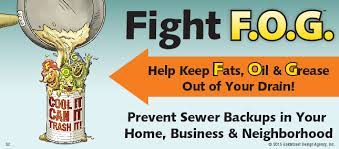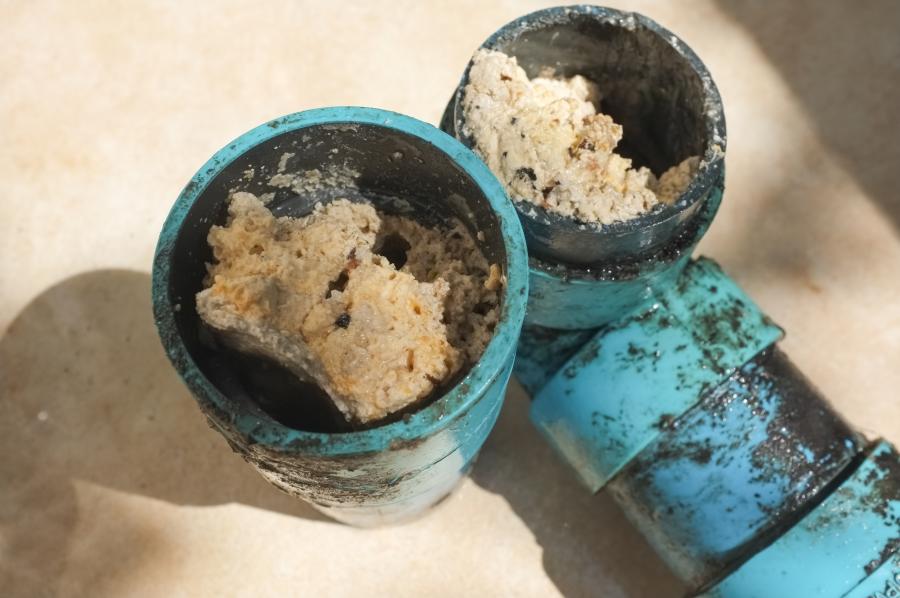Fats, Oils and Greases (FOG) Management
May 31, 2022

FOG introduced into the sanitary sewer system causes sewer backups, clogged customer service laterals and contributes to Sanitary Sewer Overflows (SSO’s). SSO's are illegal under Indiana Department of Environmental Management (IDEM) and EPA rules. FOG in our system also contributes to higher maintenance costs and higher sewer rates.
The Lawrence City Code strictly prohibits the introduction of substances that will adversely affect the proper function of the sewer system and sewage treatment facilities, and specifically addresses FOG. With respect to commercial properties, the City Code requires that food service establishments install grease traps or interceptors, and properly maintain them. Food service establishments are restaurants, cafes, lunch counters, cafeterias, bars and clubs, hotels, hospitals, sanitariums, factory or school kitchens or other facilities. The city requires proper permitting for grease traps and interceptors and monitors these installations via routine inspections during change of ownership or tenants in existing spaces, plan review and approval for new commercial construction, from complaints and from sewer backups that our crews must address with special cleaning activities. The party or parties found to be introducing FOG materials into the sewer are liable for these additional cleaning costs and may also be reported to the Marion County Health Department, and may be held responsible for any regulatory actions under IDEM or EPA.
As a homeowner or multi-family resident, you can do your part by not dumping grease, cooking oils or other fatty substances down your sanitary drain. The old thinking that a stream of hot water and some dishwashing detergent will keep the grease in liquid form so it will not clog up is simply not true. When the grease gets into the public main, where the ambient temperature of the mains is in the 50’s, the grease and oils coagulate and build up, leading to blockages and backups and, potentially, sewer spills. You can do your part to help keep sewer user rates in check by not dumping fats, oils and greases down your sanitary sewer drain.
If you have any questions or concerns about FOG, please do not hesitate to contact the Utility at 317-542-0511.
Check out this document for best practices on maintaining FOG.
Photo Gallery










